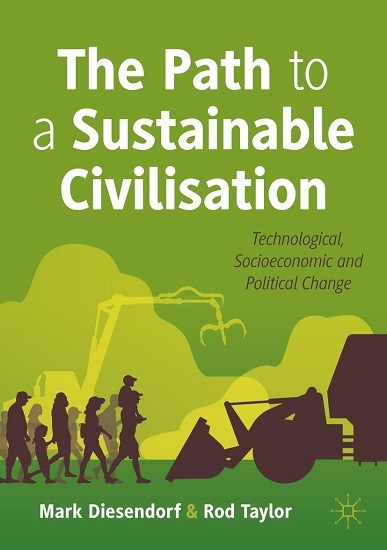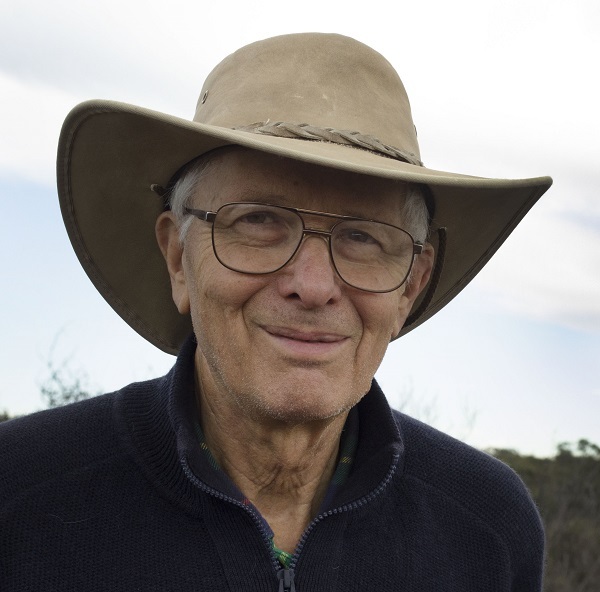Mark Diesendorf and the Path to a Sustainable Civilisation
Description
We are certainly living in precarious times. We have transgressed six out of nine planetary boundaries (with more to come). The gap between the ‘haves’ and ‘have nots’ is beginning to look less like a gap and more like a chasm. The threat of wide-scale war looms large. How do we get ourselves out of this mess before Mad Max becomes a documentary? Luckily for us, Mark Diesendorf and Rod Taylor have co-authored a new book “The Path to a Sustainable Civilisation: Technological, Socioeconomic and Political Change.” Not only does this book unpack several of the main existential challenges facing humanity, it details many proactive solutions that we can all undertake to create a better future. In this episode of Post-Growth Australia Podcast, Mark Diesendorf kindly steps into the microphone to summarise the key arguments detailed in “The Path of a Sustainable Civilisation.”

Dr Mark Diesendorf is Honorary Associate Professor in the Environment & Society Group, School of Humanities & Languages at UNSW Sydney. He is also Senior Editor for Energy of the international journal Global Sustainability. Originally trained as a physicist, he became a Principal Research Scientist in CSIRO, and then broadened out into interdisciplinary energy and sustainability research. From 1996 to 2001 he was Professor of Environmental Science and Founding Director of the Institute for Sustainable Futures at University of Technology Sydney.

PGAP listeners will be familiar with many of the challenges and solutions raised by Mark, in this interview, that are expanded on within the very concise and easy to read pages of “The Path to a Sustainable Civilisation”. These include the mechanisms of state capture and how they undermine democracy, the critical role that population sustainability contributes toward any planned Degrowth transition and how planned Degrowth may be facilitated with the sensible application of Modern Monetary Theory (MMT).
MMT is a favourite topic on PGAP and we highly recommend listening to our episode: “MMT for Activism with Gabrielle Bond”. You may also recognise Mark's co-author, Rod Taylor, who also contributed to the book “Sustainability and the New Economics” with Steve Williams, whom PGAP interviewed last year. Rod Taylor was also interviewed on PGAP for his own book “10 Journeys on a Fragile Planet.” We are certainly well read on this podcast!
PGAP is supported by Sustainable Population Australia. All views and perspectives from our esteemed guests, including current and past legacies, are their own and do not always reflect the positions held by PGAP or SPA. Your PGAP co-hosts, Michael Bayliss and Mark Allen, have been very impressed by the amount of contact and feedback that we have been receiving from our listeners and supporters. Thank you so much! Let’s build this community. Rate and review this and other episodes of PGAP on Apple Podcast or your favourite platform and feel free to share among your networks. Contact us anytime with your feedback, thoughts and ideas.
As Mark Diesendorf is a very industrious generator of wisdom, we are honoured to share a large collection of his work below, followed by the time stamp for this episode. Happy further reading!
Mark’s website: https://research.unsw.edu.au/people/associate-professor-mark-diesendorf
Mark’s Interview with The Sustainable Hour Podcast.
Mark and co-host Rod Taylor spoke at an online Australia Earth Law Alliance online event for Earth Laws month. The presentation may be seen at the AELA YouTube channel here. Yin Paradies and John Seed, who also spoke during Earth Laws month, were discusssed during the introduction of this episode. These talks may be watched here and here.
Mark wrote for The Conversation: Saving humanity: here’s a radical approach to building a sustainable and just society
New book: Mark Diesendorf & Rod Taylor (2023). The Path to a Sustainable Civilisation: Technological, Socioeconomic and Political Change. Palgrave Macmillan. eBook ISBN 978-981-99-0663-5; print ISBN 978-981-99-0662-8. See https://sustainablecivilisation.com/.
Order from https://link.springer.com/book/10.1007/978-981-99-0663-5
Latest papers
Mark Diesendorf & Steven Hail (2022). Funding of the energy transition by monetary sovereign countries. Energies, volume 15, paper number 5908. https://doi.org/10.3390/en15165908 (Can be downloaded free of charge)
Mark Diesendorf (2022). Scenarios for the rapid phase-out of fossil fuels in Australia in the absence of CO2 removal. Australasian Journal of Environmental Management https://doi.org/10.1080/14486563.2022.2108514
Mark Diesendorf (2022.) Scenarios for mitigating CO2 emissions from energy supply in the absence of CO2 removal. Climate Policy 22:88 2-896. https://doi.org/10.1080/14693062.2022.2061407
Mark Diesendorf, David Roser & Haydn Washington (2023). Analyzing the nuclear weapons proliferation risk posed by a mature fusion technology and economy. Energies 16:11 23. https://doi.org/10.3390/en16031123 .
Time Stamp
0:00:00 - 0:11:18 Introduction
0:11:19 - 1:08:02 Interview with Mark Diesendorf
1:08:03 - 1:16:23 Outro
Special Guest: Dr Mark Diesendorf.
























